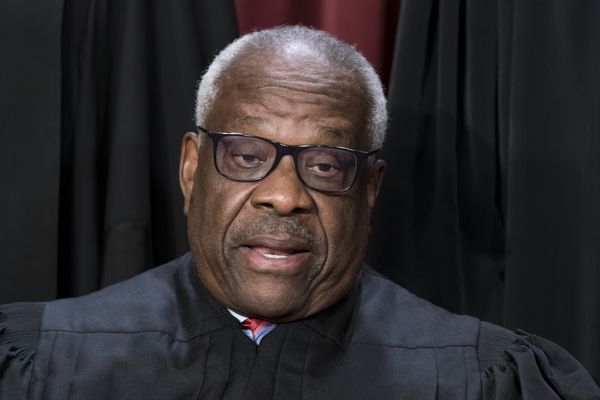
I don’t usually talk about my great-uncle Walter. Gen Walter Warlimont, as my grandfather’s brother was formally known, was head of the national defence department in the high command of the Wehrmacht, the armed forces of Nazi Germany. Only two people were between him and the Führer in the chain of command. Walter worked so closely with Hitler that the failed assassination attempt in July 1944 injured his arm. The orders he signed during wartime – about who to shoot to kill, about how to treat prisoners – meant he had hundreds of thousands of lives on his conscience.
Not that Uncle Walter was the only one in the family who facilitated the Third Reich and the Holocaust. My paternal grandparents were very proud to have been among the very earliest members of Hitler’s party. My maternal grandfather – Walter’s brother – was the head of a factory in Vienna that made the guidance systems for the V2 rocket, a factory that was staffed by Russian and Ukrainian slave labourers.
I’ve never really felt a need to write about my family history before. But Walter’s life and crimes feel uncomfortably relevant right now. As I watch how the debate and discussion over the war in Gaza have played out in Germany, in the months since the horrific attacks of 7 October, I worry that even as we constantly invoke the Nazi past, we are forgetting some crucial lessons from our history.
Support for Israel is sacrosanct in Germany. That’s for good reason. It is entirely natural for Germany to feel burdened by guilt when it comes to the Jewish people; like most Germans, I believe solidarity with the Jewish state that was created after the Holocaust is a sacred obligation. But unlike many in my country, I don’t believe that support for Israel alone fulfils the responsibility placed upon us by the horrors of the past. Instead, I fear that for the sake of the superordinate desire to stand by Israel’s side – a desire that has landed Germany with the accusation at the international court of justice of aiding genocide – we are inadvertently repeating mistakes that have been made before.
What about the lesson that all people’s lives are of equal value? At the peak of Uncle Walter’s career, Germany divided the world between Übermenschen and Untermenschen, superior people and the subhuman. The horrible outcome of that division should imbue Germans with an understanding of the importance of considering all humans as equal – regardless of racial, ethnic or religious background. And yet as I follow discussion of the war in the Middle East and the matter-of-factness with which the number of victims in Gaza has been accepted, I frequently get the impression that this lesson is being forgotten.
Observing it can no longer help the Palestinians who have died in Gaza. But it might help people living in my own country. Germany is now a multi-ethnic, multi-religious nation. It is estimated that there are about 200,000 people of Palestinian origin in our country and millions of other people drawn from across the Middle East. When they see how the war in Gaza is discussed, many of them perceive a world in which Jewish lives appear to matter far more than Arab ones. It is as though the war allows a long suppressed view of the world to resurface in Germany, in which there are superior “western” cultures on the one hand and inferior, less sophisticated ones on the other.
Debate is stifled not just for Palestinian or Muslim protesters, but for everyone. A defensive climate prevails in which simplistic concepts of good and evil are privileged above nuanced analysis. Critics of Israel’s military campaign are routinely defamed as antisemitic.
When Masha Gessen wrote an essay in the New Yorker about the aggressive dogmatism of Germany’s pro-Israel stance, much of the German media reacted with outrage. The essay was reduced to one headline-grabbing comparison – between Gaza and the Nazi-era ghettoes – that appeared in it, which German critics used to accuse the author of downplaying the Holocaust. The Israeli film-maker Yuval Abraham faced similar outrage after he decried Israel’s treatment of Palestinians and called for a ceasefire in a speech at the Berlin film festival. Many other critical voices, especially in the arts and academia, have been disinvited and defunded and find themselves persona non grata almost overnight.
Besides being the great-niece of one of Hitler’s generals, I am also a journalist in London. The reporting on the war in Britain has struck me as freer and more historically grounded than in Germany. Immediately after the Hamas massacre, the German vice-chancellor, Robert Habeck, was widely praised for warning that “contextualisation” of the atrocities could lead to their “relativisation”. The fateful events that led to the redemptive foundation of Israel and the tragedy of the Palestinian Nakba, which are illuminated and argued about in the English-speaking world, are discussed much more timidly in Germany, almost as though looking too closely could undermine the moral certainty of being on the right “side”.
And yet such simplistic thinking appears to be leading my country into forgetting yet another lesson of the Nazi era: the danger of falling prey to rightwing fanatics. I have no doubt that good intentions – fuelled by repentance – underpin the unconditional German support for Israel. But in our desire to paint the world in black and white – with the role of victim reserved for Israelis, who are seen as westerners, and the role of perpetrators assigned to Arabs, seen as other – we find ourselves in perverse alignment with authoritarians: with Benjamin Netanyahu’s rightwing nationalist government, with white nationalists in the US and with the far-right AfD party at home.
The final – and possibly most acute – lesson, which many Germans seem to be suppressing, stems from our own extraordinary postwar experience. After the second world war, and after centuries of atrocities, the vicious circle of revenge was broken in Europe. This was a truly historic achievement from which the Nazi perpetrators benefited more than anyone else.
Look at my family: for all his crimes, Uncle Walter did not face the death penalty. Instead, after six years, the life sentence imposed on my great-uncle in the Nuremberg trials was lifted and he was released in 1954. He died in the 1970s as a wealthy, respected man on the shores of one of Bavaria’s prettiest lakes. His brother, my grandfather Paul Warlimont, was sentenced to only two years in prison for his mistreatment of factory workers. He was later awarded Germany’s Order of Merit. My paternal grandparents, the very early Nazis, were also granted a rich and free postwar life. The clemency extended to all my forebears was clearly not in the service of justice. But it did serve the interests of peace.
In short, during the past eight decades, postwar Europe has prospered thanks to an extraordinary willingness by Germany’s enemies to forgive her crimes and to let the desire for conciliation trump the desire for justice. This experience should obligate us. It should make Germans always and for ever opponents of vengeance and retribution, whether by Palestinians or Israelis. We should not be fanning the flames in the Middle East by committing ourselves to one beleaguered community over another, let alone exporting weapons to the Netanyahu government and backing it at the United Nations. Instead, we should speak humbly of the miracles that abjuring revenge can bring about. We owe it to our history.
Eva Ladipo is a German journalist and novelist based in London
Do you have an opinion on the issues raised in this article? If you would like to submit a response of up to 300 words by email to be considered for publication in our letters section, please click here.







